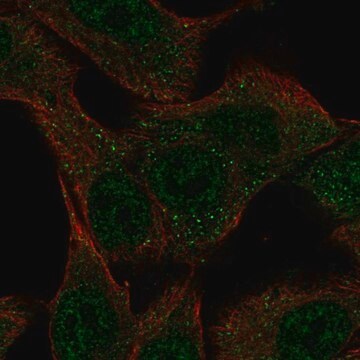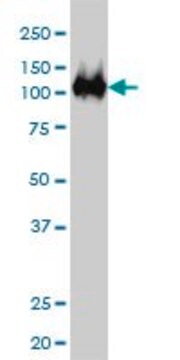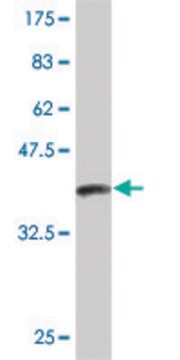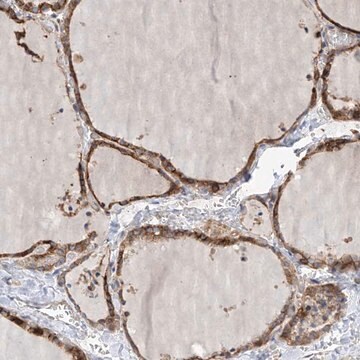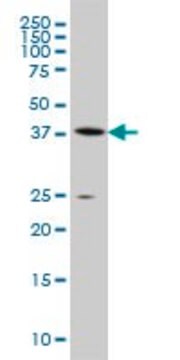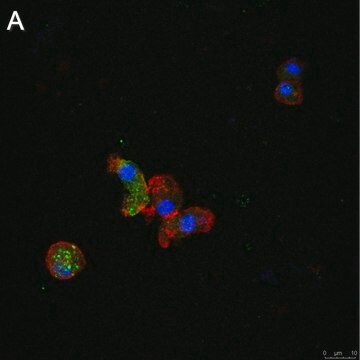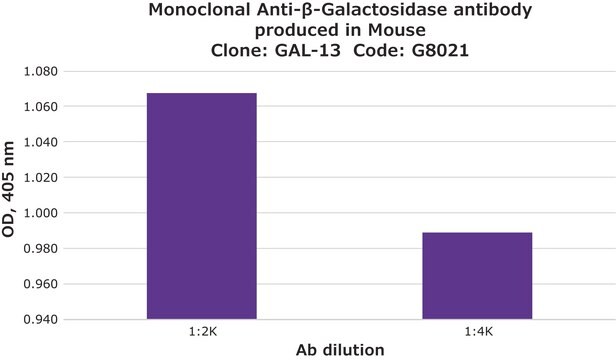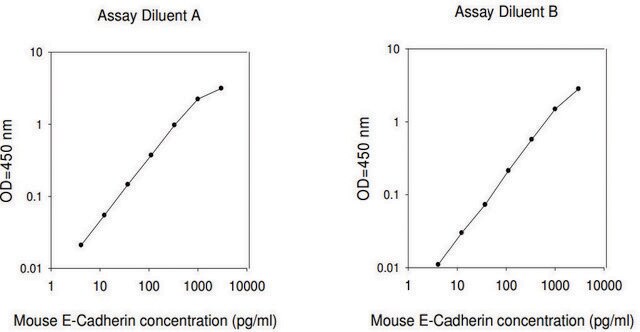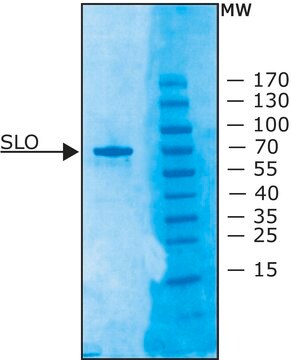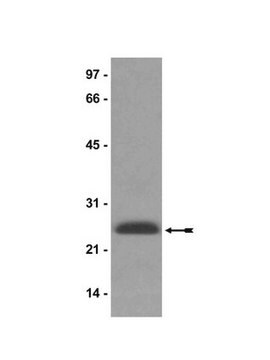SAB1404763
Monoclonal Anti-SETDB1 antibody produced in mouse
clone 4E8, ascites fluid
About This Item
Recommended Products
biological source
mouse
Quality Level
conjugate
unconjugated
antibody form
ascites fluid
antibody product type
primary antibodies
clone
4E8, monoclonal
mol wt
antigen ~37 kDa
species reactivity
human
technique(s)
indirect ELISA: suitable
western blot: 1-5 μg/mL
isotype
IgG2aκ
NCBI accession no.
UniProt accession no.
shipped in
dry ice
storage temp.
−20°C
target post-translational modification
unmodified
Gene Information
human ... SETDB1(9869)
General description
Immunogen
Sequence
SSLPGCIGLDAATATVESEEIAELQQAVVEELGISMEELRHFIDEELEKMDCVQQRKKQLAELETWVIQKESEVAHVDQLFDDASRAVTNCESLVKDFY
Physical form
Not finding the right product?
Try our Product Selector Tool.
Storage Class Code
11 - Combustible Solids
WGK
WGK 1
Flash Point(F)
Not applicable
Flash Point(C)
Not applicable
Choose from one of the most recent versions:
Certificates of Analysis (COA)
Don't see the Right Version?
If you require a particular version, you can look up a specific certificate by the Lot or Batch number.
Already Own This Product?
Find documentation for the products that you have recently purchased in the Document Library.
Global Trade Item Number
| SKU | GTIN |
|---|---|
| SAB1404763-200UL | 4061836272418 |
Our team of scientists has experience in all areas of research including Life Science, Material Science, Chemical Synthesis, Chromatography, Analytical and many others.
Contact Technical Service